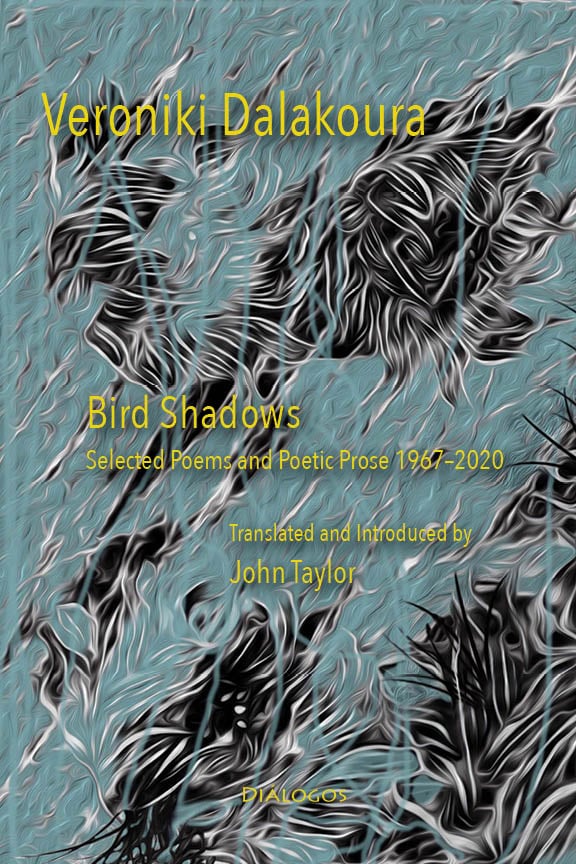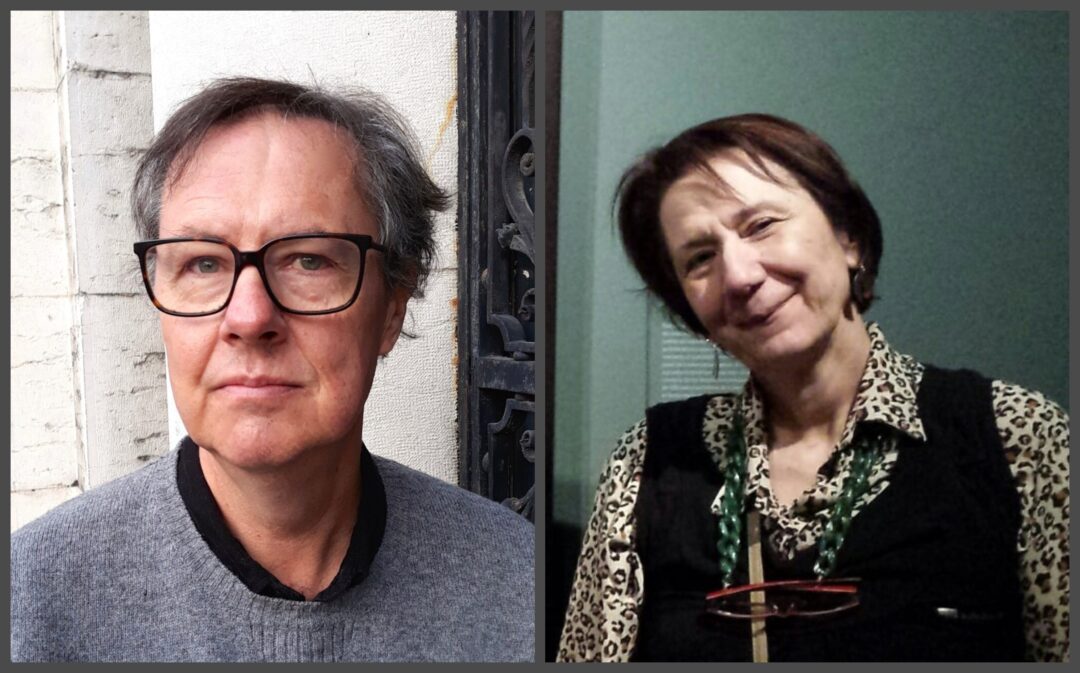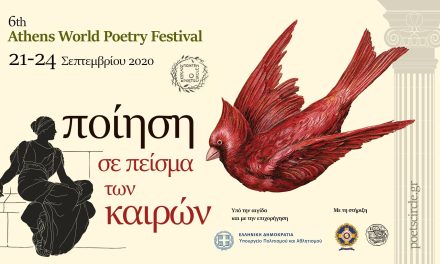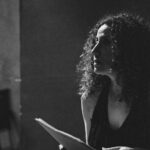Veroniki Dalakoura (b. 1952) is considered one of the leading Greek poets of her generation. Her writing shows the influence of surrealism and her books often combine verse poems, prose poems, hybrid forms, and longer narratives in provocative ways.

Issued by Diálogos Books in New Orleans, Bird Shadows: Selected Poetry and Poetic Prose 1967-2020 gathers a generous selection, for the first time in English, of Dalakoura’s poetry and prose poetry. Masterfully translated by John Taylor, the book begins with a selection of her precocious first poems, which she began to write when she was fifteen years old and which immediately brought her originality to the attention of major Greek poets, while it also includes translations of her most significant pieces from her seven subsequent collections. Bird Shadows concludes with representative offerings from her two most recent books, Carny (2011) and Cappadocians (2020).
The project constitutes the culmination, and realization, of a project that Veroniki Dalakoura and John Taylor conceived in the early 1980s. After reading her book Hypnos (1982), the translator remained deeply impressed by the content and construction of the book, in which poetic prose texts and longer prose narratives trace out a spiritual quest of “rebirth”, an itinerary involving fragmentary love stories, nocturnal wanderings and unsettling encounters, sometimes in settings in or near Montpellier. As Taylor adds in his Translator’s Introduction, “although [Dalakoura’s] work now and then draws on classical mythology, as well as on Greek Orthodox theology, it essentially puts forward what renowned writer and literary critic Kostas G. Papageorgiou defines as ‘her absolutely own personal mythology [and her] own poetic universe, spacious enough to include everything that motivates her in her journey through the heart of time and the chaos of History’”.
Takis Sinopoulos, who was the first major Greek poet to discover Veroniki Dalakoura’s poetry, wrote as early as 1973 of how she “deliberately and with a very logical determination… abolishes syntactically organized writing, exorcises punctuation, torments spelling, undermines the semantic function of the subject matter, arranges contradictory or irrelevant propositions, tiptoes like a tightrope walker between incoherent images—which creates the very conditions for the birth of surprise and of the unexpected”…

Through resonant and provocative verse poems, prose poems, hybrid forms, and longer narratives, Dalakoura, whose writing is marked by surrealism and informed by her own translations of French poets such as Desnos, Rimbaud, and Baudelaire, has continued to explore themes bringing together suffering and release, death and rebirth, eros and spirituality. As Taylor notes, “her provocative style, down to its most rudimentary ingredients (comprising as well various kinds of indentations and the justification, or not, of the righthand margins in prose passages), participates fully in the meaning of these texts in which the boundaries between poetry and prose, between lyricism and storytelling, are likewise often blurred”.
Dalakoura’s poetic language replicates the potpourri of thoughts, feelings, and sense impressions at a given moment when she faces—must face up to—an uncomfortable stimulus, be it an oppressive recollection, a disturbing event, an unavoidable fact. To cite Taylor, “often a prophetic vision seeks a form in her oeuvre, and her style, in its various manifestations, mirrors this ‘seeking’ more than any immobilizing conclusion. There is no shelter, stopover, place of rest”. In reaction to this linguistic anxiety and existential fright is the spiritual journey undertaken from book to book. “It is a journey that must be made, after the trauma of being thrown into the world at birth, or, later, of suffering loss, of divining the putrefaction beneath the pristine surface”.
In the words of distinguished Greek poet Maria Laina, Dalakoura’s symbols “raise not so much a problem of interpretation for the reader as that of expanding his or her own senses of perception”. As Pieretta Diamantopoulou eloquently puts it, “Reading Dalakoura’s work demands self-abandonment into the bizarre magic of its seemingly unrelated images (where sometimes even imagery by association seems to be abolished). It is a voluntary immersion in the dim light of an individual’s beyond, an exercise in apnea for that sacred moment of great terror when we approach at the end of life, when we step onto the threshold of death”.
A.R.
TAGS: LITERATURE & BOOKS | READING GREECE













